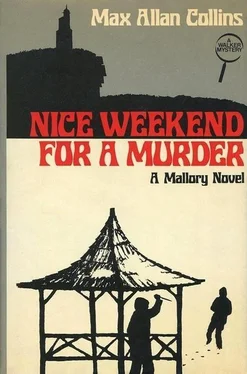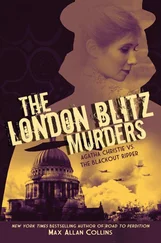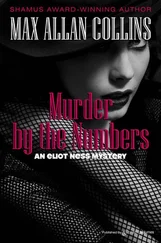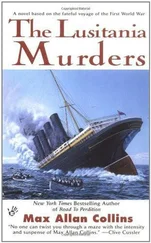“And I’m a suspect!” He said this with glee.
“He suspects everyone,” Jill said, “and he suspects no one.”
Now I was a little embarrassed. Just a little.
“Look,” I said, “I just want to know if I’m the only guy who saw this particular Saturday Night Live sketch.”
“TV reference again,” Jill said. “Watch it.”
“Maybe it was staged specifically for you,” Tom said.
“Curt didn’t think so,” I said. “Everybody knows all the guest authors are billeted in that wing. Curt says I just happened to be the one who got snookered.”
Tom pushed his empty coffee cup aside. “What do you think?”
“I think I’m going to do what all these game-players are doing this weekend.”
“What’s that?”
Dum da dum dum.
“Play detective.”
YOU ARE LESTER DENTON — age thirty-seven. Small-town boy, introverted, Middletown High Class of ’67 — Least Likely to Succeed (also member of Chess and Poetry Clubs). A life-long nerd, you are an asexual bachelor living with your rather wealthy, widowed mother. Despite being a timid soul who rarely ventures out of the house, you have succeeded in realizing a lifelong dream: you have had a mystery novel published, The Apple Red Take-off . But your dreams have been dashed by critic Roark K. Sloth, in whose Mystery Carbuncle your debut novel has been unmercifully panned. You blame the lack of financial success of the novel directly on Sloth’s heartless review. When you check into the Mohawk Mountain House one wintry Thursday evening for a mystery writer’s convention, you are at first distressed to find Sloth one of the guest lecturers. Then, upon second thought, you decide his presence presents a unique opportunity to rectify an unpleasant situation. You go to Sloth’s room that evening and offer the critic money to “simply ignore” the next (and, if sales don’t pick up, probably last) Lester Denton novel, Death Is a Fatal Disease . Sloth not only laughs at you, he pledges to reveal your “pathetic” attempt to bribe him in a Carbuncle article; and when, though flustered, you shrewdly point out that there are no witnesses to the bribery attempt, and therefore Sloth would be putting himself on the line for a libel suit, the critic laughs smugly and reveals a pocket tape recorder — on which the entire conversation has been captured! You leave, tail tucked between your legs, defeated, but notice private eye Rob Darsini coming down the hall, apparently on his way to Sloth’s room. The next morning, you are as surprised as the other guests to discover that Sloth has been found dead in his hotel room with a knife in his back, slumped over his typewriter, a sheet in which bears the cryptic dying clue: TOVL FOF OY. And no tape of your bribe attempt is found.
YOU WILL NOT LIE — but you will not volunteer information about the visit to Sloth’s room unless asked by an interrogator. You will, if confronted directly, admit having attempted to bribe Sloth. You will reveal having seen Darsini. You are not the killer; you did not steal the tape.
This, as written by Curt Clark, was all I knew about the character I would be portraying in the Mohonk mystery this weekend; each of the author guests had received similar instruction sheets by mail, though we weren’t privy to each other’s. I tucked mine back in the envelope it had come in (MALLORY — EYES ONLY), which also included a sheet with one-paragraph descriptions of the other suspects, and placed it in my inside suitcoat pocket, for handy reference. I looked at myself in the mirror, straightened my red bow tie, which was color-coordinated with my pale pink shirt, combed back my heavily Brylcreemed hair, which was parted in the middle, adjusted my window-glass glasses so that they were halfway down the bridge of my nose, under which a pencil-line moustache twitched, and adjusted the SUSPECT badge on one lapel of my double-breasted black-and-red-and-white-plaid corduroy suit.
I was, for all intents and purposes, Lester Denton, suspect in the Roark K. Sloth murder, The Case of the Curious Critic . While I’d never thought of myself as a nerd, nor did I have a wealthy, widowed mother, Denton was, in some respects, a cute if nasty-around-the-edges parody of myself and my own situation with Kirk Rath. In light of the murder I’d witnessed (or was that “murder”?), I found the wry, sardonic echoes of real life in Curt’s scenario more disturbing than amusing. I wondered if the other authors were playing roles that struck them as somewhat uncomfortably similar to themselves and their own bitterness toward Rath.
“You make a truly convincing nerd,” Jill said, smirking cutely, skin crinkling around the corners of her cornflower-blue eyes.
“I know you are,” I said nasally, “but what am I?”
“Takes one to know one,” she said nasally back at me.
I gave her a sloppy, nerdy smooch and slipped my arm around her shoulder and we walked out into the hall and down to Curt’s room, where all the role-playing authors were assembling, prior to the first of the weekend’s two interrogation sessions, which was to begin just fifteen minutes from now. Partylike sounds were going on behind Curt’s door; we paused before going in.
“You look so cute with that little mustache,” she said, pinching my cheek (facial cheek). “I’m tempted to just be a groupie and hang around and watch your performance.”
I shook my head no. “I’d really prefer you to circulate — listen to the other ‘suspects.’ ”
“What am I supposed to get out of that?”
“I don’t know,” I admitted. “Just make sure you catch a glimpse of each of them, noting whether or not they seem unduly ill at ease.”
“If they do, it won’t necessarily mean anything more than stage fright.”
“Maybe not, but jot down some notes anyway. Also, look for any particularly obsessive game-players; anybody who seems to be taking this too seriously, or is really pushy in the interrogation sessions.”
“How am I supposed to know what their names are?”
I pointed to my badge. “They’ll be wearing them.”
“Ah.”
We knocked on Curt’s door, which Curt himself opened. “Well, Lester Denton in the flesh!” he said above the crowd’s conversation, doing a pop-eyed take. “Where on earth did you find that suit?”
Jill said, “You’d be surprised. I didn’t have to dig all that far back in his closet to unearth it.”
I shrugged. “The early seventies were a do-your-own-thing kind of era; apparently my thing was tacky plaid suits.”
“Yesterday’s trendsetter,” Curt said, ushering us in, “today’s nebbish .” His room, which was filled with the other suspects, was easily twice as large as ours, a suite really; the fireplace was bigger, and the twin beds were boxed together, I noted. The suspects were all in costume, of course; only Curt was in civvies, a casual blue shirt and brown slacks. He had a glass of something in his hand — ginger ale, as it turned out — and he got us some.
“Well,” he said, “you certainly look your part. Ready to live it as well as look it?”
“Sure. How long did you say this session’s going to be?”
“One hour; they get another hour with you tomorrow morning. Say, you know, you really loosened everybody up.” He gestured to the costumed suspects around him.
“How’s that?”
He raised his eyebrows. “Ah, well...” He put them back down. “I think my sense of black comedy got the best of me, in whipping up this mystery; some of the guests — Jack Flint and my brother, in particular — took a little offense at the way I’d written their roles, especially in regard to ‘Roark K. Sloth.’ ”
Читать дальше












